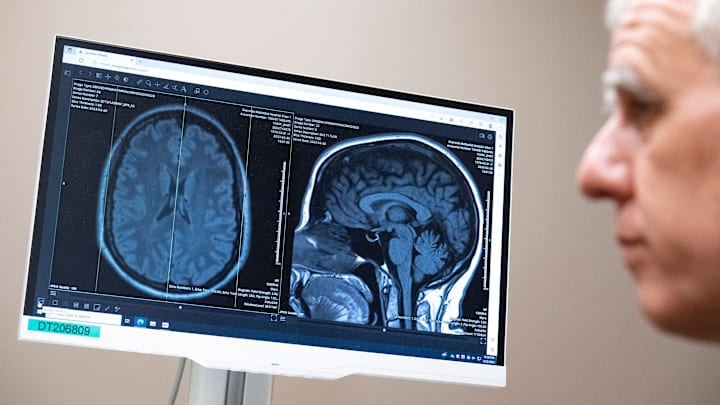NIH makes $15.3 million grant to help CTE diagnosis in football players

An arm of the U.S. Government is about to make new investment, and it centers on one of football’s biggest concerns.
The National Institute of Health has awarded a $15.3 million grant to fund research for the diagnosis of chronic traumatic encephalopathy (CTE) in the living.
Currently, CTE can only be diagnosed through an autopsy, but this study will look at potentially discovering the illness in those who are still alive.
Led by the Boston University CTE Center, the DIAGNOSE CTE Research Project-II will examine “new potential biomarkers using blood and brain imaging to help doctors accurately diagnose CTE in living patients.”
Former NFL quarterback Matthew Hasselbeck will be one of the first former players to take part.
“As a former NFL player, I know I am at risk for CTE, but right now I am blessed to be feeling healthy,” Hasselbeck said.
“As a former quarterback, I’m choosing to volunteer for DIAGNOSE CTE II to honor my teammates, especially those who blocked for me and took hits to the head so I didn’t have to.”
Hasselbeck also encouraged other former college football players and NFL veterans aged 50 or above to take part in the study “to help researchers learn how to diagnose and treat CTE.”
--
Read more from College Football HQ

James Parks is the founder and publisher of College Football HQ. He has covered football for a decade, previously managing several team sites and publishing national content for 247Sports.com for five years. His work has also been published on CBSSports.com. He founded College Football HQ in 2020, and the site joined the Sports Illustrated Fannation Network in 2022 and the On SI network in 2024.